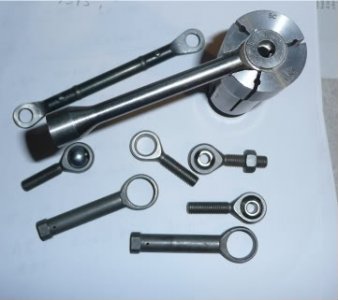- Joined
- Feb 19, 2013
- Messages
- 8
Hi,
Just wondering what specific purpose collets are used for on a lathe as opposed to a chuck.
I can see why one would choose to use a 3 jaw vs 4 jaw for different situations but what situation would make you choose collet?
-Steve
Just wondering what specific purpose collets are used for on a lathe as opposed to a chuck.
I can see why one would choose to use a 3 jaw vs 4 jaw for different situations but what situation would make you choose collet?
-Steve


